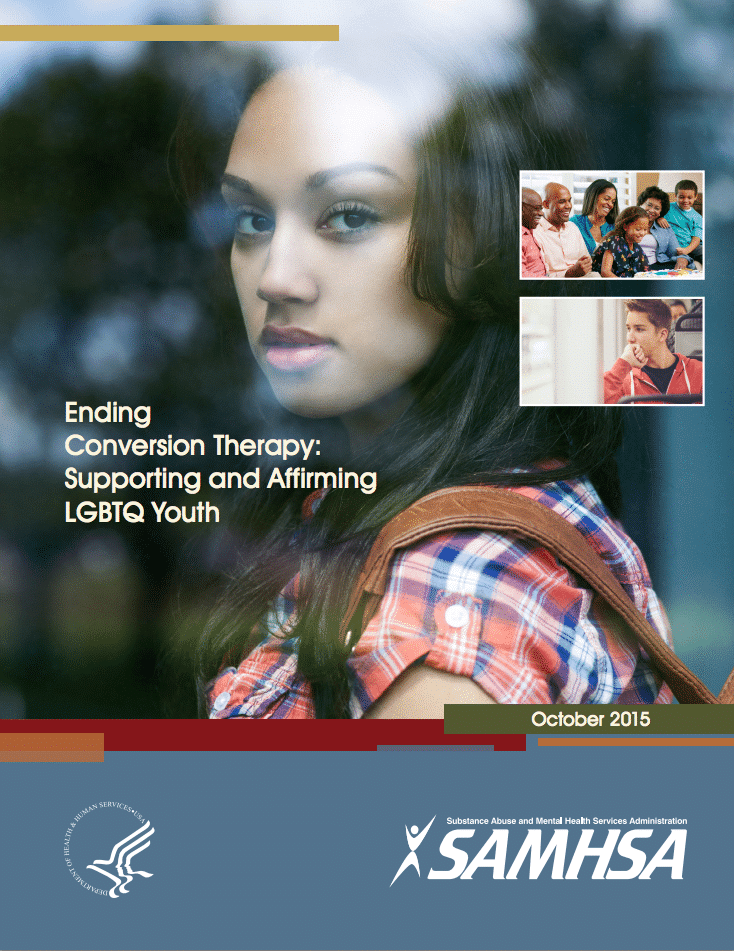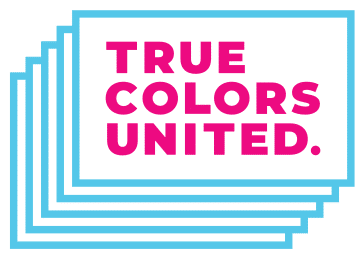
Despite a mountain of evidence suggesting the immense damage that lesbian, gay, bisexual, transgender, and queer/questioning (LGBTQ) conversion therapy can have on a young person, it remains legal in all but four states (California, New Jersey, Oregon, and Illinois) and Washington, D.C. Expert groups including the American Psychological Association and American Counseling Association, and world leaders like President Barack Obama have come out against conversion therapy, yet there is still no national law banning the practice.
The Substance Abuse and Mental Health Services Administration’s (SAMHSA) new report, Ending Conversion Therapy: Supporting and Affirming LGBTQ Youth, is the strongest federal statement to be made yet against these harmful practices. The report aims to provide families and mental health professionals with accurate information regarding therapeutic practices related to sexual orientation and gender identity by presenting research, clinical expertise, and expert consensus.
The report arrived at three key findings:
- Same-sex attraction, as well as diversity in gender identity and expression, “are a part of the normal spectrum of human diversity and do not constitute a mental disorder.”
- No existing research shows that conversion therapy is successful at altering gender identity or sexual orientation.
- Interventions that aim to change sexual orientation, gender identity, and gender expression “are coercive, can be harmful, and should not be part of behavioral health treatment.”
SAMHSA’s report was lauded by the White House on its release. Valerie Jarrett, a senior White House adviser, put it this way, “It’s not our job to tell parents how to raise children, but it is our responsibility to show parents the best scientific evidence when raising their children.” According to the report, LGBTQ young people “who experienced high levels of family rejection during adolescence fared significantly worse than those who experience low levels of family rejection in terms of depression, substance abuse, sexual risk behaviors, and suicide attempts.”
According to our research, identity-based family rejection is one of the most frequently cited reasons LGBTQ youth experience homelessness. Not only is conversion therapy harmful to a young person’s physical, mental, and emotional well being, it can also contribute to homelessness. Ending LGBTQ conversion therapy would be a major step in the effort to end LGBTQ youth homelessness in the United States.
The True Colors Fund applauds SAMHSA’s new report and calls an end to conversion therapy in every state.
Read the full report here, and learn how you can get involved in the effort to end conversion therapy by checking out the National Center for Lesbian Rights’ #BornPerfect campaign.
